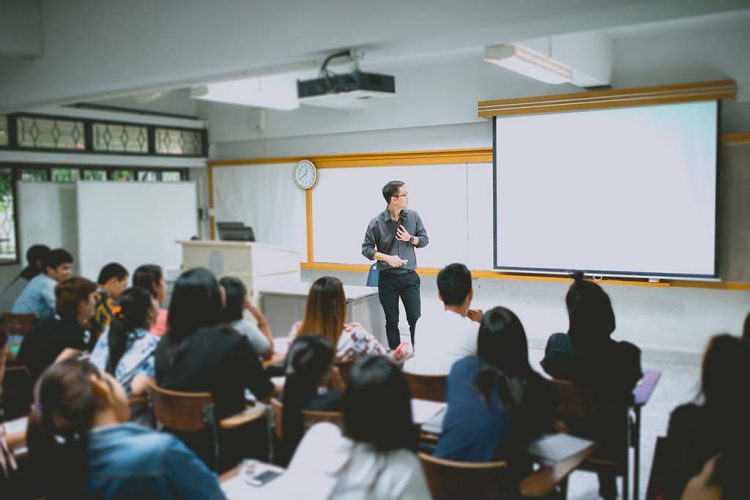Achieve Academic Success with Primary Science Tuition Singapore
Achieve Academic Success with Primary Science Tuition Singapore
Blog Article
Discover the Necessary Advantages of Recognizing Primary Scientific Research for Young Students
The importance of primary science education for young learners expands much beyond mere understanding acquisition; it offers as a fundamental pillar in establishing necessary abilities such as vital reasoning, analytic, and creative thinking. Engaging with clinical concepts through interactive and inquiry-based activities not only grows inquisitiveness however likewise lays the foundation for resilient, positive learners.
Enhancing Vital Assuming Skills
Fostering important assuming skills in young students is crucial for their cognitive development and future scholastic success. Important reasoning allows children to evaluate information, examine evidence, and make informed choices, which are important abilities in today's information-rich culture. By engaging in clinical inquiry, young students can boost these skills as they discover principles with trial and error, reasoning, and observation.
In primary scientific research education and learning, teachers can help with crucial reasoning by urging students to ask inquiries, formulate theories, and carry out experiments. This hands-on technique permits youngsters to exercise analytic and develop rational thinking abilities. When students check out the buildings of materials or the principles of motion, they find out to analyze their findings critically and attract conclusions based on proof.
In addition, discussions and collective tasks can promote essential reasoning by supplying opportunities for learners to articulate their thoughts, obstacle assumptions, and take into consideration diverse point of views. By producing an encouraging environment that values query and reflection, educators can nurture critical assuming abilities that encourage young learners to come to be lifelong students and independent thinkers. Eventually, enhancing these abilities lays a durable foundation for their future academic ventures and individual development.
Fostering Curiosity and Expedition

Key science education gives an organized environment where young learners can check out numerous phenomena through hands-on experiments and monitorings. By enabling them to interact with products and take part in inquiry-based learning, educators produce chances for children to formulate theories, check their ideas, and reason. Such experiences nurture a feeling of marvel and enjoyment regarding science.

Structure Confidence in Problem Addressing
Structure self-confidence in analytic is an essential element of primary scientific research education and learning that empowers young students to come close to challenges with resilience and creativity - primary science tuition Singapore. When children are encouraged to engage with clinical principles via hands-on activities and inquiry-based learning, they develop crucial skills in crucial reasoning and analysis. This procedure not just improves their understanding of clinical concepts but likewise cultivates a feeling of ownership over their discovering
To develop self-confidence, instructors must develop a supportive atmosphere where blunders are deemed chances for development instead of failures. This encourages students to take risks and check out different solutions to issues. By giving scaffolding and assistance, instructors can help trainees browse complex jobs, progressively increasing their self-reliance in analytic situations.
Additionally, collaborative knowing experiences, such as team projects or experiments, can better boost trainees' confidence as they find out to verbalize their ideas and pay attention to others' viewpoints. These interactions nurture social skills and strengthen the idea that analytical is typically a cumulative endeavor. Inevitably, growing self-confidence in analytical prepares young learners for future scholastic obstacles and equips them with the tools needed for long-lasting understanding.
Motivating Imagination and Development
In the realm of key scientific research education, encouraging creativity and development is vital for growing a dynamic learning setting. By cultivating a society where young students can explore ideas and experiment easily, educators help pupils develop important thinking skills and a passion for exploration. Creative thinking in science motivates youngsters to ask questions, devise theories, and take part in hands-on activities that boost their imagination.
Integrating open-ended tasks and inquiry-based discovering right into the educational program enables pupils to reveal their special viewpoints and options. As an example, when tasked with solving an issue pertaining to their environment, trainees can conceptualize numerous methods, bring about inventive end results that display their creativity. This not Continued only grows their understanding of scientific principles yet additionally imparts a sense of possession over their discovering procedure.
Moreover, imaginative science education nurtures cooperation among peers, as pupils commonly share ideas and build on one another's insights - primary science tuition Singapore. This collaborative spirit advertises not only development yet also important social skills. Therefore, by focusing on imagination and advancement in key science education and learning, we encourage young learners to think critically, accept challenges, and imagine opportunities, laying a strong structure for lifelong knowing and expedition
Planning For Future Learning Challenges
Young students' capacity to browse future understanding difficulties pivots on a solid structure in key science education and learning. This foundational understanding furnishes trainees with vital assuming abilities and a systematic method to analytic, crucial for tackling complex concerns in an ever-evolving globe. Primary science fosters inquiry-based knowing, encouraging students to ask inquiries, discover hypotheses, and participate in hands-on experiments.
As they establish these skills, students end up being proficient at examining data, acknowledging patterns, and drawing informed conclusions. Such proficiencies are vital not only in scientific fields however likewise in innovation, engineering, and mathematics (STEM), where interdisciplinary knowledge is increasingly critical.
In addition, primary science education and learning grows a sense of interest and resilience in young students, allowing them to watch challenges as click here to find out more possibilities for growth. As they run into and get over challenges in their clinical explorations, they construct self-confidence in their ability to introduce and adjust.
Eventually, a strong foundation in key science not just prepares young learners for academic searches but additionally equips them with the devices essential for lifelong knowing and flexibility in a rapidly altering international landscape. By spending in key scientific research education and learning, we are investing in the future capacity of our students.
Final Thought
Understanding key science is important for young students, as it fosters vital reasoning, interest, and creative thinking. Engaging with scientific ideas via hands-on experiments enhances problem-solving capabilities and builds resilience. This foundational knowledge not only furnishes students to examine information and acknowledge patterns but additionally nurtures an inquiry-based attitude. Ultimately, the benefits of main science education and learning prepare youngsters for future academic searches and instill lifelong understanding habits important for thriving in an ever-evolving globe.
The value of main scientific research education and learning for young learners expands far beyond mere understanding purchase; it offers as a fundamental pillar in creating necessary skills such as essential thinking, problem-solving, and imagination. By producing a supportive setting that values query and reflection, educators can support crucial assuming skills that equip young students to come to be independent thinkers and lifelong students. Thus, by prioritizing imagination and advancement in main science education and learning, we empower young students to assume seriously, accept difficulties, and picture possibilities, laying a solid structure for long-lasting learning and expedition.
Young learners' capability to navigate future understanding difficulties hinges on a strong structure in primary science education and learning.Understanding main read more scientific research is critical for young students, as it fosters crucial reasoning, curiosity, and creative thinking.
Report this page